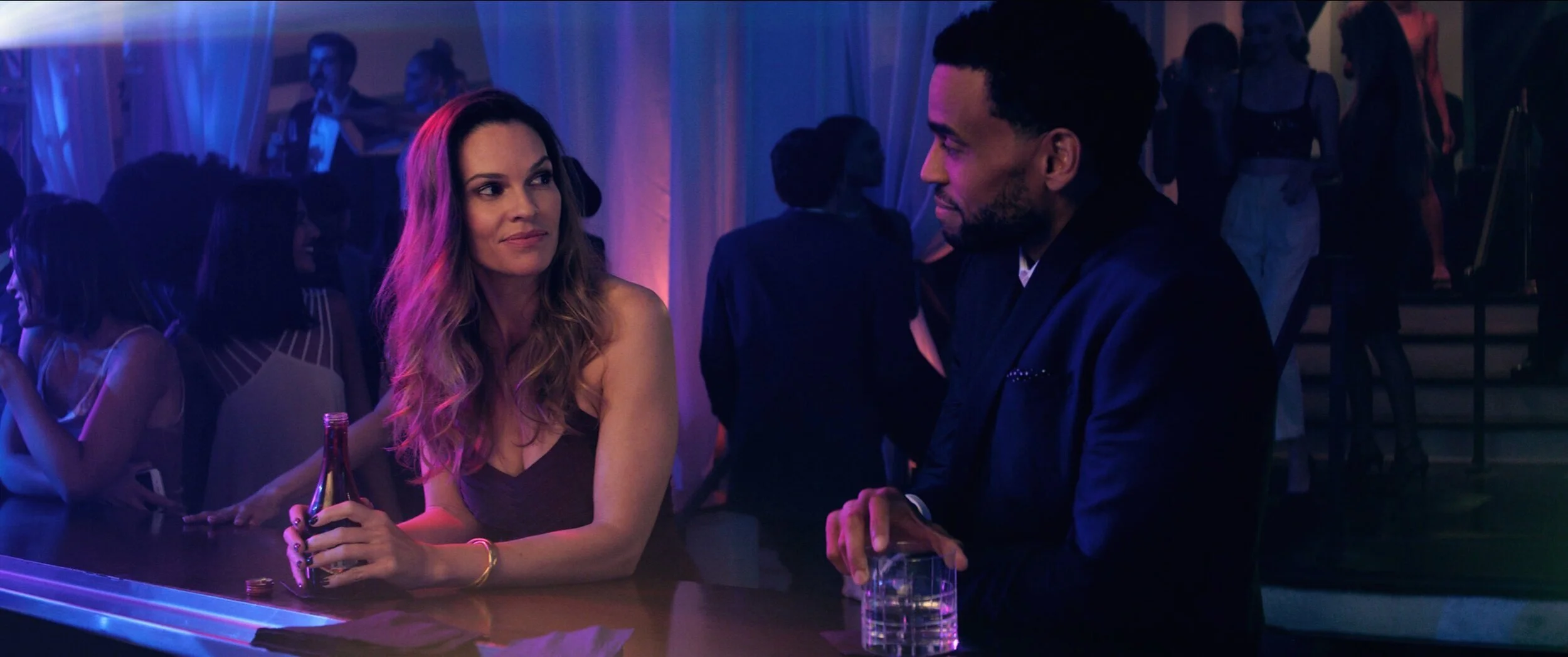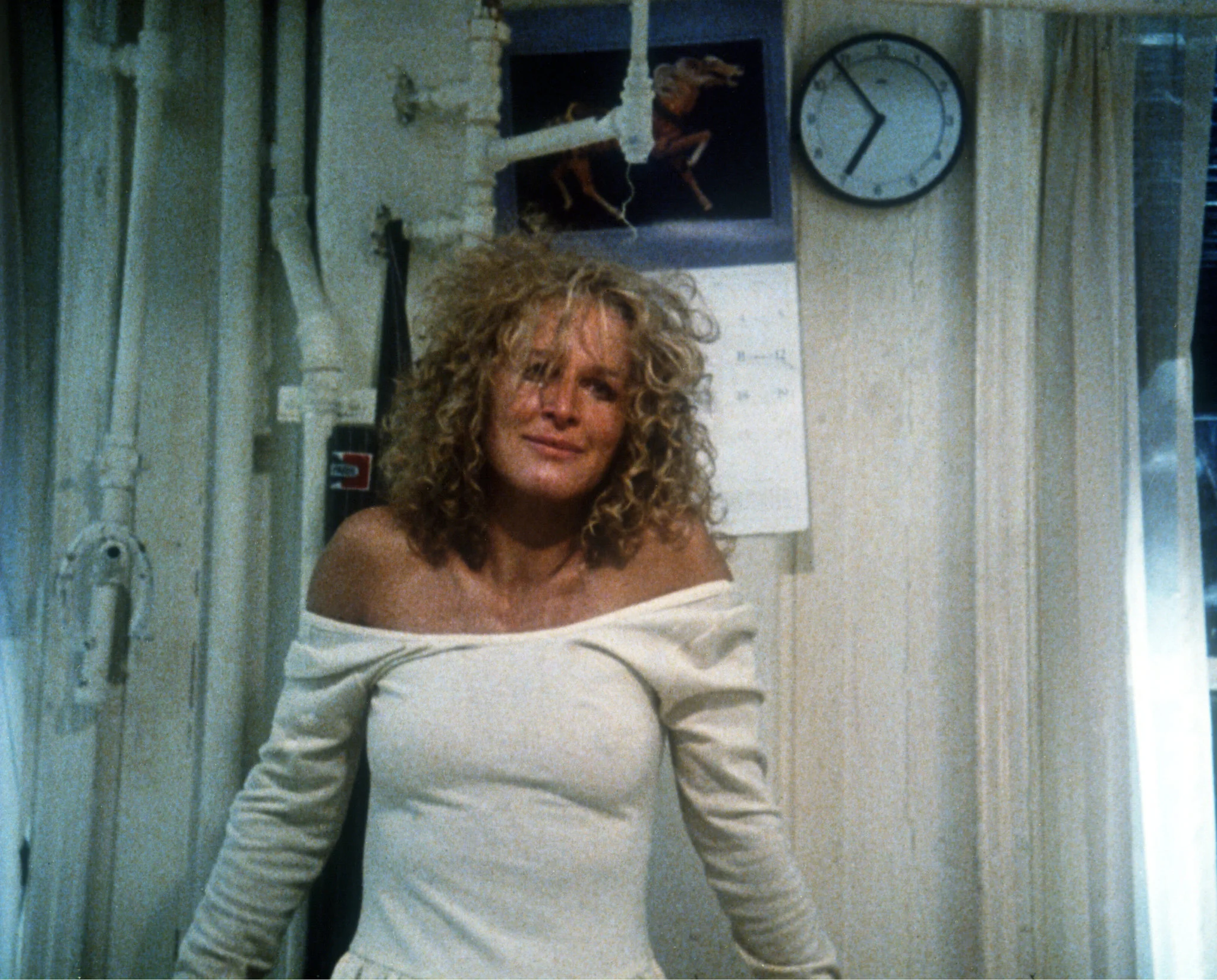No More Bunny-Boilers: This New Film Offers A Fresh Take On Obsession
There’s something familiar about Hilary Swank’s new movie, Fatale, and it’s not just the name. The title pays tribute to the Michael Douglas-Glenn Close classic, Fatal Attraction and, like that movie, Fatale is about an affair gone wrong. Thirty-five years after Fatal Attraction hit the screens, however, the differences between the two movies makes the shift in society’s mores clear.
Fatal Attraction had a clear warning imbedded in its plot: if you cheat, it might be with a psychopath who could ruin your life. With his family away for the weekend, Michael Douglas’ Dan – a successful lawyer with an impossibly beautiful wife, a photo-worthy home and a cute-as-a-button daughter – is easily convinced to turn a chance meeting with new colleague Alex (Glenn Close) into drink, dinner and dessert, the latter in full suggestive italics.
Over dinner, Alex asks Dan if he’s discreet. He says he is and before you can say “Waiter, we’ll have the cheque,” he has her sitting over a kitchen sink while he desserts the hell out of her. It’s meant to be a fling, but Alex won’t be discarded. Pretty soon, she is cutting her wrists, stalking him, destroying his property and boiling the family pet. (If you’ve never known the provenance of the term “bunny boiler” – to indicate a scorned woman who acts vengefully – this is it.) In short, Alex is nuts, Dan must confess to his wife and by the end Alex ends up dead.
Fatale starts with a similar premise. Derrick (Michael Ealy) is a successful Los Angeles businessman with a supermodel-type wife (played by Damaris Lewis, an actual former Sports Illustrated model). But after he has an affair with a random stranger on a Las Vegas trip, his one-night stand re-enters his life: she’s the police detective investigating a break-in to his house. There are plenty of similarities between the movies, including a sex-in-the-sink scene, and a scene when the husband comes home to find his nemesis in his house with his wife.
The differences lie in the way the characters are treated. Fatal Attraction may have cast the unfaithful husband as hero and the badly-behaved woman as villainess, but you can’t get away with that these days. Nor can you make an entire movie about a woman who goes off the deep end without addressing her motivation.
In Fatale, Hilary Swank’s Valerie may seem unhinged and obsessive, but she’s not a cartoon character. Valerie’s motivations aren’t initially clear – is she in love with Derrick? Is something more sinister at play? But the audience starts to understand her better as segments of her past are revealed. In Fatale, you eventually get a big chunk of Valerie’s disturbing back story and understand where things started to go wrong in her life.
Glenn Close as Alex in 1987’s Fatal Attraction. Top: Hilary Swank and Michael Ealy in Fatale.
Compare that with Alex in Fatal Attraction. She might as well have been a horror movie slasher, trading a pickaxe for a vat of boiling water. Worse, she’s clearly a woman in distress: she acts irrationally, attempts suicide, pivots wildly from one extreme emotion to another. But is she ever seen as someone who deserves sympathy? No, she’s someone you want to get rid of, quick smart.
Glenn Close, for one, will be happy about the way that depictions have changed. Close, who was nominated for a best actress Oscar for Fatal Attraction, later wanted to remake the story and present Alex as a more nuanced and complex character.
More than anything, she didn’t like the trope of an out-of-control madwoman, perpetuated in a series of later movies: Single White Female, Disclosure, The Hand That Rocks the Cradle and Swimfan among them. (Trust me, there’s more: just Google “crazy woman stalker movie”.)
As Close told CBS news: “Most people with mental illness are not violent. And most people who commit violent crimes do not have a diagnosed mental illness. That is wrong, and it’s been proven wrong and it is immoral to keep that perpetrated.”
Men’s behaviour is also seen differently in Fatale. In Fatal Attraction, Dan was quickly off the hook for his bad behaviour: he came clean to his wife and she not only forgave him, she saved him. By the end of the movie, he is presented as a guy who got unlucky. He chose the wrong woman to cheat with, and he came really close to having his family killed as a result. In the end, everyone is OK except for the wicked temptress who gets her just desserts. Dan is not only forgiven; Fatal Attraction pitches him as heroic.
In Fatale, Derrick is presented as someone who’s flawed. The audience never forgives his behaviour, but they are shown his point of view early on: his marriage is on shaky ground and he suspects his wife might be cheating. The movie doesn’t suggest that if you choose your mistress more wisely, all would be well: in the last scene, there’s a voiceover (on a car radio) that tells listeners not to cheat.
The shame of it is that Fatal Attraction is a better movie. It’s tighter and sharper and whether you agree with the way the characters are portrayed, you want to hold tight to your seat the whole time. Fatale is sillier but still thrilling, and also keeps you guessing until the end. This time, however, the audience doesn’t walk away feeling icky.
Fatale depicts lifelike characters dealing with extraordinary circumstances – you might not believe the scenario and how it plays out, but you do believe the people in it. There are bad women (and men) in both movies, but in Fatale there are many more shades of grey. And that, dear moviegoers, is progress, 2021 style.
Want more Tonic delivered free to your inbox? Subscribe here


